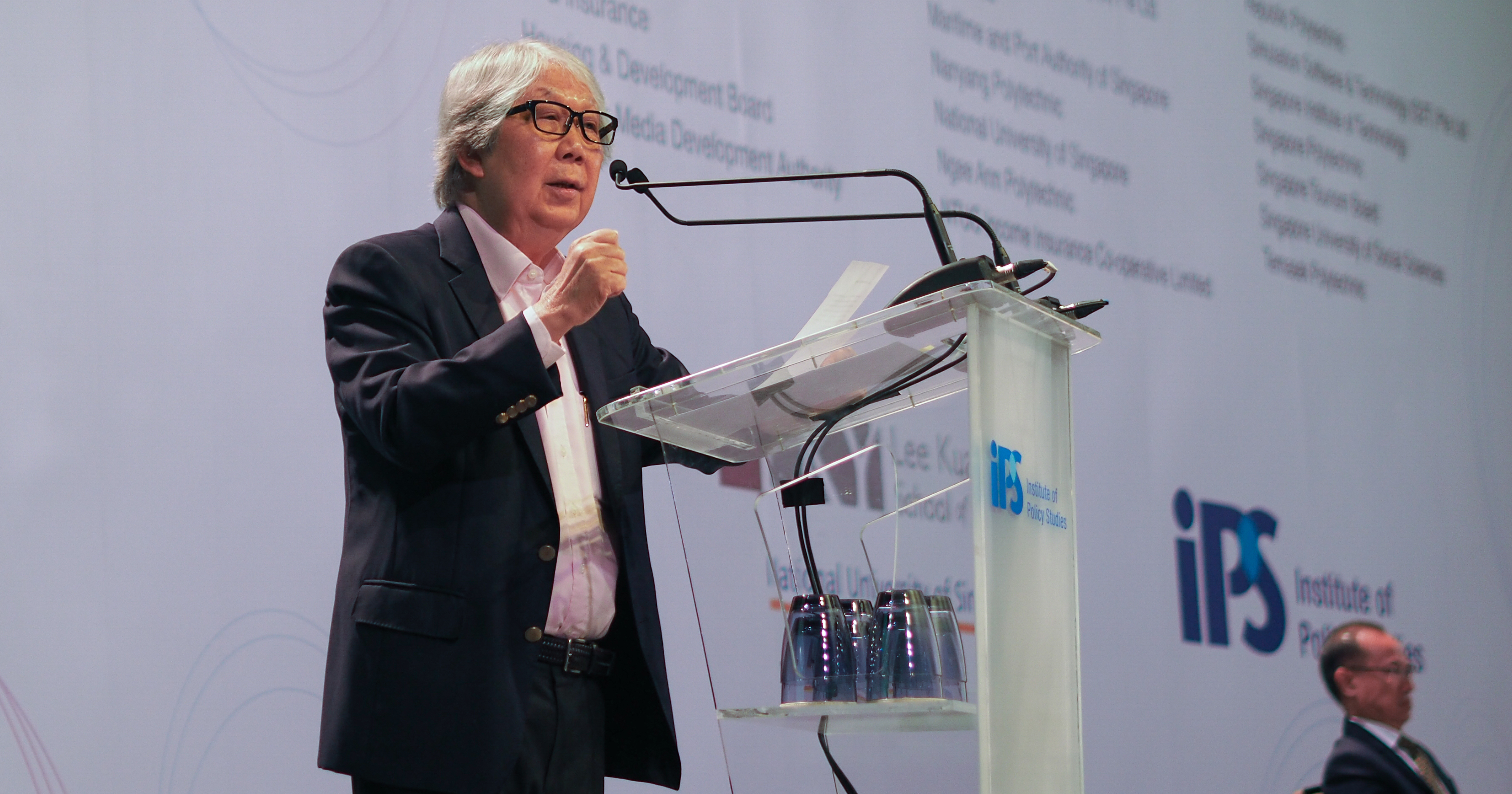The United States and China are very important countries, but the world is larger than them, said Ambassador-at-Large Tommy Koh.
Saying he does not like the "Singapore.World" theme for this year's Singapore Perspectives (SP) conference held on Monday, Jan. 28, Koh added that the biggest economy in the world is not the US or China, but the European Union (EU).
The annual conference brings together government officials and intellectuals to consider the implications of geopolitical developments on Singapore and the region.
The world is larger than the U.S.
Koh, offering his list of the top 10 developments in the world in 2018, said the world is larger than the two major powers because of the following reasoning:
1. The TPP did not die
Koh said when US President Donald Trump pulled the country out of the Trans-Pacific Partnership (TPP), many thought that the trade agreement would die.
However, it continued to live, albeit in another form.
"The remaining 11 members of the TPP modified it to become the CPTPP and it has come into force. It is open to accession by other countries, such as the UK post-Brexit.
The moral of the story is that the US is important but it is not indispensable."
2. The Paris Agreement is "alive and well"
Koh continued by saying that while the world wondered whether the Paris Agreement on Climate Change would survive without the US when it announced its withdrawal, the "happy news is that no other country has followed the US out of the agreement".
"Even in the case of the US, many states, cities and leading companies have pledged to honour the commitments made by the Obama Administration."
3. "Counter-revolutionaries" against free trade have not won
Koh said there while there is a "counter-revolution" led by the US against free trade, the "counter-revolutionaries have not prevailed" in 2018.
Nevertheless, he said it is important for the 16 countries involved to conclude the Regional Comprehensive Economic Partnership (RCEP) negotiations as soon as possible.
Koh also emphasised the importance of upholding international cooperation and multilateral institutions, and not allow "right-wing populists" who "wish to destroy" multilateral institutions to win this fight.
At the same time, he noted that it is vital to not allow the "growing inequality in our societies to produce the phenomenon of the angry voters".
Koh then raised examples of other international developments that might potentially affect Singapore, such as a no-deal Brexit.
No-deal Brexit
Koh said that considering how the British Parliament has rejected the divorce agreement between the United Kingdom (UK) and the EU, the former is likely to leave the EU on March 29 this year with no agreement.
"This will have very serious repercussions for the UK, the EU and other countries such as Singapore".
Koh also mentioned that the situation on the Korean Peninsula and the deepening division between the Sunnis and the Shiites in the Middle East can potentially have implications on Singapore and the region.
Koh ended his speech with a comment on US-China relations, saying the US intellectual consensus on China has changed.
"The Americans now believe that the era of cooperation is over and that they have entered a new era of strategic competition".
Koh then diverted a few key questions to former Minister for Foreign Affairs George Yeo and historian Wang Gungwu, who were on the same panel.
He asked them how they would describe the current relationship between the US and China, and if the two countries are destined for war.
Yeo: China is not a "missionary power"
Yeo, at the panel discussion, said that the Chinese people found it inconvenient to incorporate non-Han people into their populations in its history when the Chinese empire waxed and waned.
He was responding to Koh's question on the reasoning behind a benign view of China when, quoting from a Korean scholar he exchanged views with, that "China had invaded Korea at least 500 times".
Later, when Koh raised the topic of Tibet and Xinjiang, something China finds extremely sensitive, Yeo added that he is not there to defend the Chinese position.
Earlier in his speech, Yeo said he does not believe that war between the US and China is inevitable, because it is not in China’s nature to be a “missionary power”.
His view is that those who lived and work in the “intersection” between the two powers, such as Singapore, should play their part to help bridge these differences.
Wang: US hegemony being threatened by China
Wang gave his views on the US-China rivalry during the panel discussion too.
He first said that China is confident of its ability to combat external threats, and has managed to revive themselves no matter what their difficulties were and reassert their Chinese identity.
However, he is not sure if the US has the same confidence in themselves like China does.
He explained that as the US hegemony in the world is being threatened by China, anyone who disturbs this position has to be "put down".
This is due to one interpretation, that the US views itself as the "masters of the world responsible for world peace and prosperity".
Both Wang and Yeo ended the discussion by highlighting the importance of the role Asean plays in the peace and stability of the region, even as power rivalries deepen.
Top image by Andrew Wong
If you like what you read, follow us on Facebook, Instagram, Twitter and Telegram to get the latest updates.
